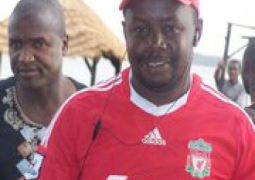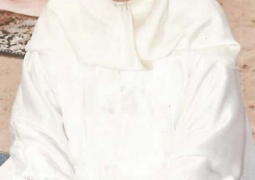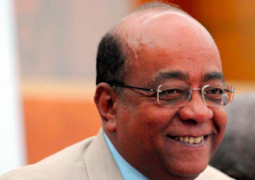Isatou Sanyang, women development officer, Gambia Federation of the Disabled, has urged the Government of The Gambia to ratify and domesticate the United Nations Convention on the Right of the Disable and adopt National Disability Policy.
Madam Sanyang was speaking during a children’s party in the commemoration of the Day of the African Child, under the theme: “The Rights of Children with Disabilities: The Duty to Protect, Respect, Promote and Fulfill”, held on 15 June 2012 in Bakoteh.
“All of us have the duty to protect children with disabilities from abuse, neglect and exploitation. We should respect their equal rights, rights to education, healthcare, to the same opportunities as any other child,” he said.
She added that the GFD is an advocacy body, and they are working to addressing challenges of stigma and discrimination against persons with disabilities.
She said The Gambia signed the convention on the right of the child in 1990 Article 23 of which specifically gives states the obligation to realize all rights for children with disabilities on an equal basis with other children and promote their interest.
According to her, despite the social attitudes towards children with disabilities having become more positive in recent years, unfortunately stigmatization still remains; these attitudes often lie at the heart of the discrimination and exclusion experienced by children with disabilities.
“Children with disabilities are part of our communities they can go far, if they are given the opportunity, just like any other children,” she argued.
“The development of any country is determined by the quality of life of all its inhabitants, thus we cannot claim to be developed if some members of our society are left behind,” said Sarjo Bajinka, education officer, Special Needs Education Unit, Ministry of Basic and Secondary Education (MoBSE).
He said the theme for the commemoration is very important as children with disabilities have long been subjected to various forms of discrimination, particularly with the unprecedented cases of child abuse in
“These and many other reasons have made the disabled child vulnerable, marginalised by social status, poverty, religion, ethnicity and most importantly denied them of right to education,” he said.
He said the Ministry of Basic and Secondary Education has made giant strides in the education of children with disabilities as indicated in the Education Policy 2004-2015.
Mr Bajinka added that the policy clearly outlines that children with mild to moderate special needs will be integrated into mainstream schools and those with severe special needs will be accommodated in special schools.
“Special needs and inclusive education policy set out a number of strategies to ensure inclusion of children with special needs,” he said.
This includes advocacy and sensitization to foster positive attitudes and address misconception regarding person with disabilities and also ensures access to relevant and quality education.
Integration of blind and low vision through the Integration Education Programme for Blind and Low Vision Children (IEP) in regions 1, 2 and 3, training of polyvalent itinerant teachers, provision of buses and equipment for children with special needs among others.
He said MoBSE is committed to put in resources to ensure all children with special needs are fully included and get the maximum attention from the society and from school depending on their capabilities.
Madam Ndella Faye Colley of Voluntary Service Overseas (VSO) said the day is to remember the unarmed African children who were killed in 1976 in
“It also provides the opportunity for development actors including governments, UN agencies, NGOs and local communities to reflect on our development activities to improve the lives of children, particularly the marginalised and most vulnerable,” she said.
She said the VSO is an international development organization that works through volunteering to improve the lives of the poor and the marginalized including persons and children with disabilities.
She said that over the years, the VSO Gambia programme office has worked in partnership with different local organizations to complement government’s effort at improving the lives of the disabled in both urban and rural areas.
“VSO provided specialised and skilled volunteers in small grants to partners to engage on capacity building work with these organizations to improve the skills, knowledge, systems and processes for quality service delivery to person and children with disabilities in The Gambia,” she said.
She also said children with disabilities still experience discrimination from the family to the community and are hidden or subjected to begging to support family income.
More intervention to eliminate this social menace is crucial, she said, adding that people need to pay attention to violence against children with disabilities, because children with disabilities are prone to violence due to their limitations, isolation and invisibility from family and community activities.
“They are denied access to school because of low expectations from them, girls are being forced to marry older people out of their will or sterilised to prevent pregnancy,” she complained, while calling for more intervention in this area to eliminate acts of violence against children with disabilities.




